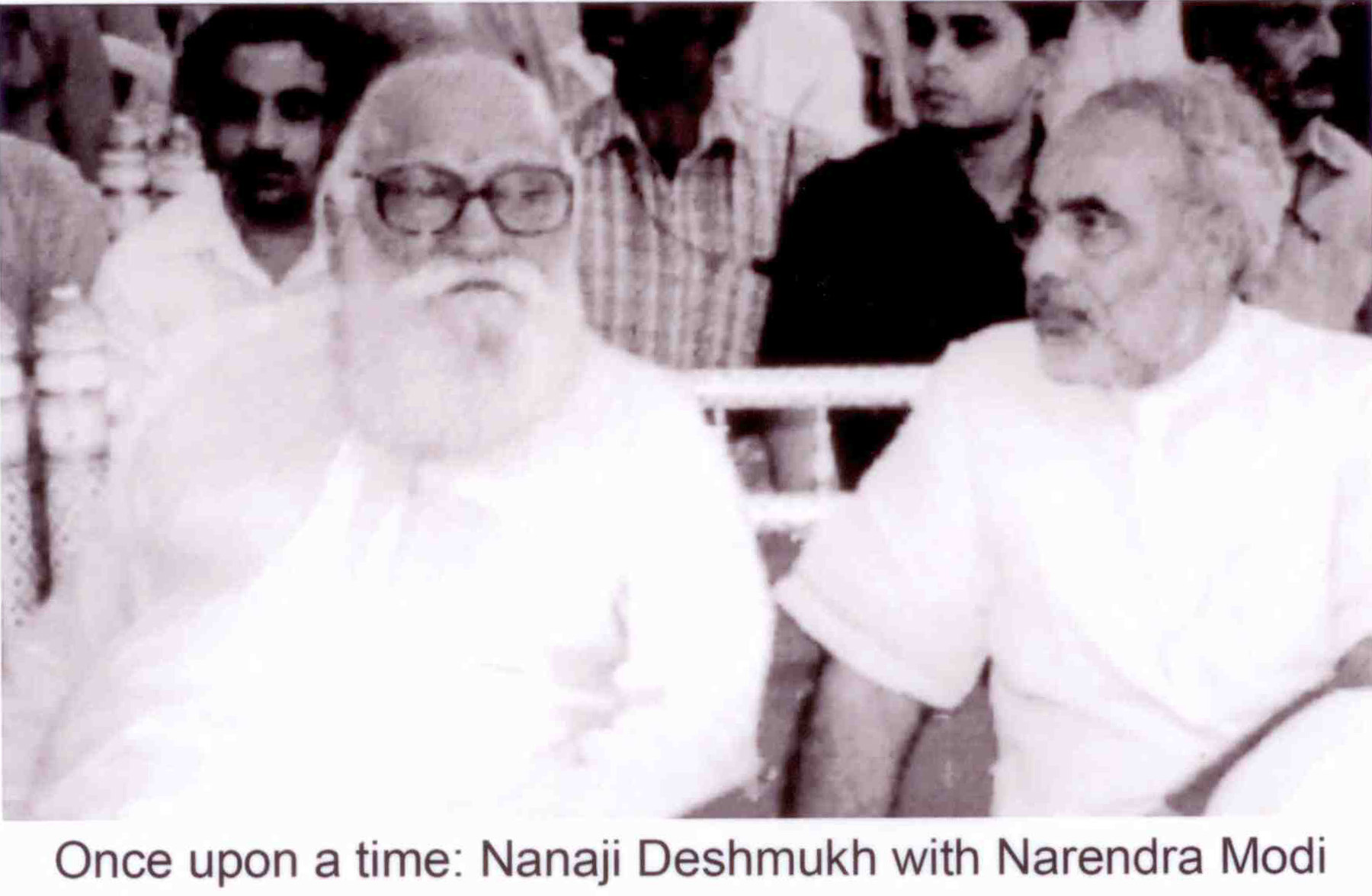The country has an example eminently worthy of emulation in Chandikadas Amritrao (Nanaji) Deshmukh, who was influenced by Bal Gangadhar Tilak’s nationalist ideology and left a distinctive imprint by virtue of his selfless work for the poor and downtrodden.
Individuals of honour and principle are rare in politics anywhere. India is no exception. A saving grace has been that some of the people born in the 1940s (or earlier) had a chance to witness the impact, on public life, of men
Barring Mookerjee—who was briefly in the Nehru Cabinet and who established the Bharatiya Jana Sangh (BJS) in 1951 as an alternative to the Congress—and Tandon, who was Speaker of the UP Legislative Assembly, none of them held office. Their integrity, ability and sincerity were alike unchallengeable.
The formation of the BJS was supported by Sri Guru Golwalkar, the second RSS chief, who told Mookerjee: “I will give you five gold pieces”. Afterwards, Deendayal Upadhyaya, Nanaji Deshmukh, Balraj Madhok and two others were deputed to the new party.
The country has an example eminently worthy of emulation in Chandikadas Amritrao (Nanaji) Deshmukh, who was influenced by Bal Gangadhar Tilak’s nationalist ideology and left a distinctive imprint by virtue of his selfless work for the poor and downtrodden. He shared his birthday with JP, who was 14 years older. When JP gave the call for “total revolution” in the mid-1970s, Nanaji responded wholeheartedly. He had earlier participated in Vinoba Bhave’s bhoodan movement.
They shared a unique bond. On their common birth anniversary on 11 October, 2020, Prime Minister Narendra Modi said: “India is proud that legends like JP and Nanaji Deshmukh were born in this land…Nanaji was one of the Lok Nayak’s most devout followers….”
Nanaji’s contacts across party lines made him an invaluable asset to the emergence of the Janata Party in 1977. He was the hero of the Emergency, underground. However, he did not accept an offer to join the Morarji Desai government as a Cabinet minister. He had won the elections with a comfortable margin from the Balrampur Lok Sabha constituency in UP.
JP (1902-79) was posthumously awarded the Bharat Ratna in 1999, Nanaji (1916-2010) in 2019.
Their backgrounds were very different. Born in a Marathi-speaking family, Nanaji sold vegetables to raise resources for his education. At an early age, he joined the RSS whose founder, Dr Hedgewar, encouraged him to attend the shakhas. Sri Guru Golwalkar sent him to Gorakhpur (UP) as a pracharak. He met Deendayal Upadhyaya, who later edited Panchjanya (weekly) and Swadesh (daily) from Lucknow in which Nanaji actively assisted him.
It was not an easy task to establish the Sangh in the eastern part of the province, but Nanaji’s dedication bore fruit and over 250 shakhas came into being. His emphasis on education led him to set up the first Saraswati Shishu Mandir at Gorakhpur in 1950.
The BJS gained strength from Upadhyaya’s vision and Nanaji’s organizational capacity and became an important player in UP. An opponent, C.B. Gupta (Congress Chief Minister) had respect for Nanaji and would call him “Nana Phadnavis”. Around this time, his relations with Dr Ram Manohar Lohia had a bearing on national politics. Nanaji invited Lohia to a BJS Karyakarta Sammelan where he (Lohia) interacted with Deendayal Upadhyaya for the first time; this went some way towards bringing the BJS closer to the socialist parties.
The origins of the Bharatiya Janata Party (BJP), born in 1980, lie in the BJS of Syama Prasad Mookerji. The RSS has been the BJP’s back bone.
Nanaji was disillusioned with the way the Janata Party had put ambition before principle. Announcing his retirement from politics, he said that he had turned sixty and wished to set an example.
He was a model of austerity and the highest ethical standards and devoted himself to rural development projects. He was determined to create a microcosm where the dream of antyoday (welfare of the last person in society) could be realized and served the Deendayal Research Institute that he himself had established in 1969, implementing the philosophy of “integral humanism” to improve the living standards in villages of Bundelkhand. His zeal for social reform was boundless.
Moving to Chitrakoot, he set up the country’s first rural University—the Chitrakoot Gramoday Vishwavidyalaya located in Central India’s forested area. An idealistic symbolism also attaches to Chitrakoot, given that in the Ramayana it was here that Lord Rama spent a part of the 14-year vanvaas.
In today’s India (and for a world ravaged by the coronavirus), there is no other option but to build back better. Our youth have to take a lead and repair the damage, without deviating from the core values of the national identity—undivided by walls of caste or region—where no authority can promote or discriminate against any religion and where a robust democracy isn’t just about winning elections.
It has lately been argued that big reforms prompt big protests. However, the “learning” from such protests needs to be that while the reforms themselves are right, the method of execution ought to be different.
In their time, the likes of Nanaji Deshmukh would have striven for the government to go forward, consistent with democratic norms. Discussion papers would have been prepared for public comment and for debate in Parliament, as also duly hearing various sections of opinion and the state governments, including those run by the Opposition.
On his death in February, 2010 in Chitrakoot, the mortal remains were conveyed to New Delhi, kept at Keshav Sadan (RSS’ headquarters in the capital) and (as indicated by him earlier) donated to the AIIMS with the help of the Dadhichi Dehdan Sanstha.
His was a truly inspiring and memorable life, which is how the spirit of Nanaji Deshmukh must live on.
Arun Bhatnagar retired as Secretary, Government of India.

